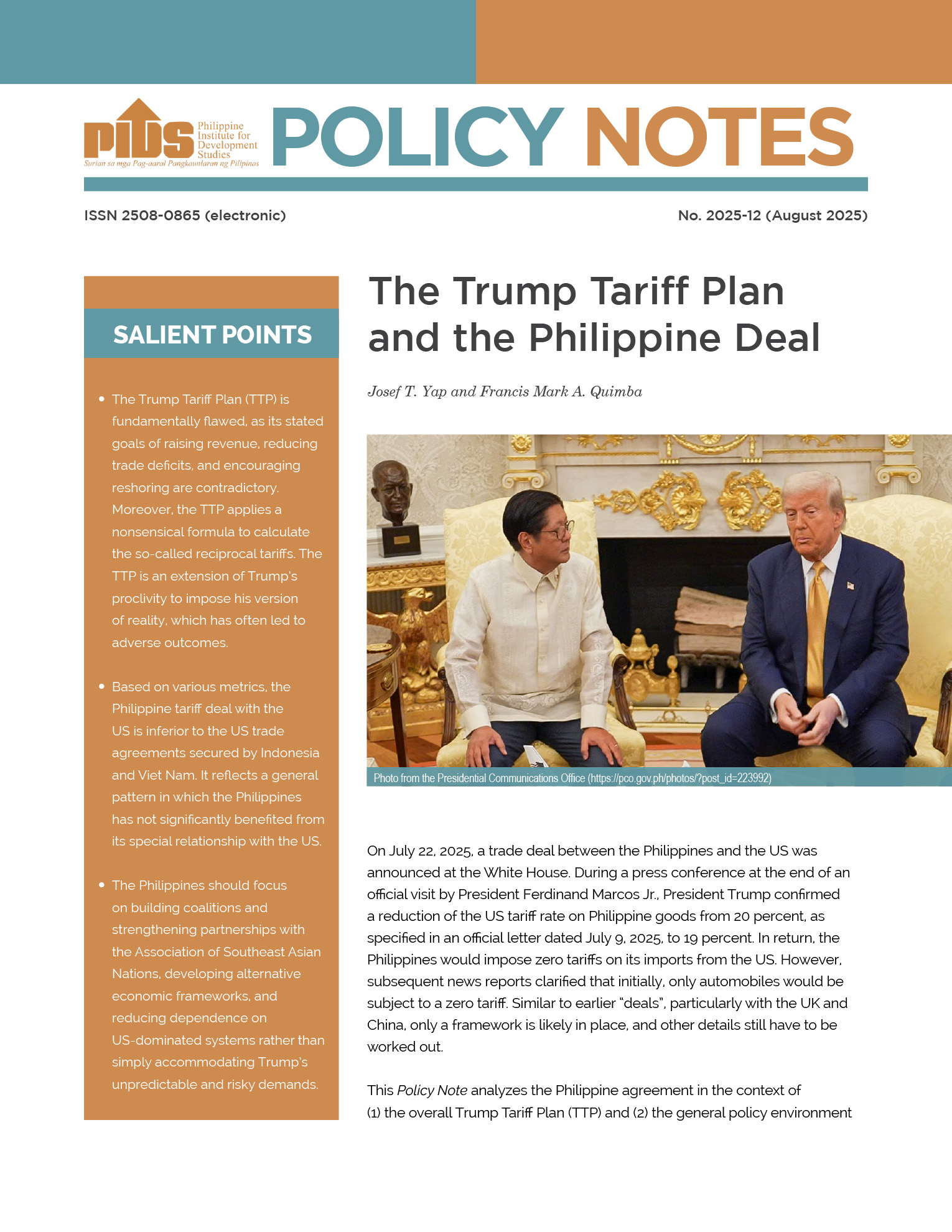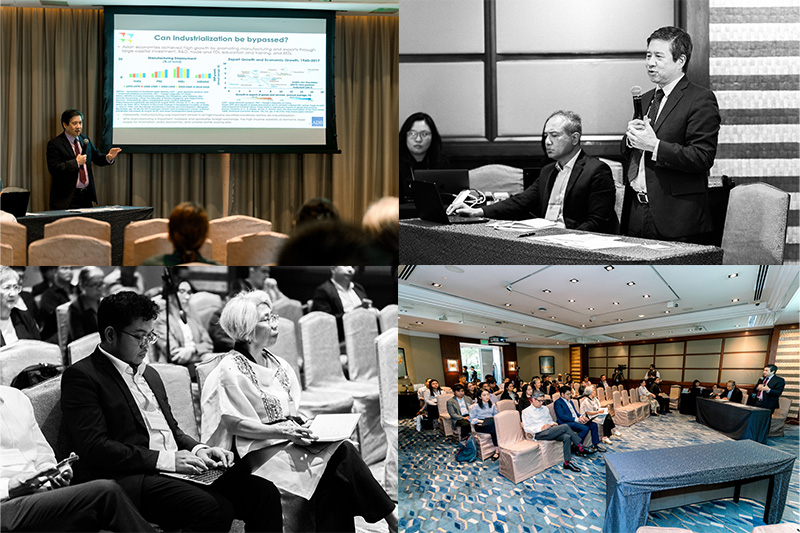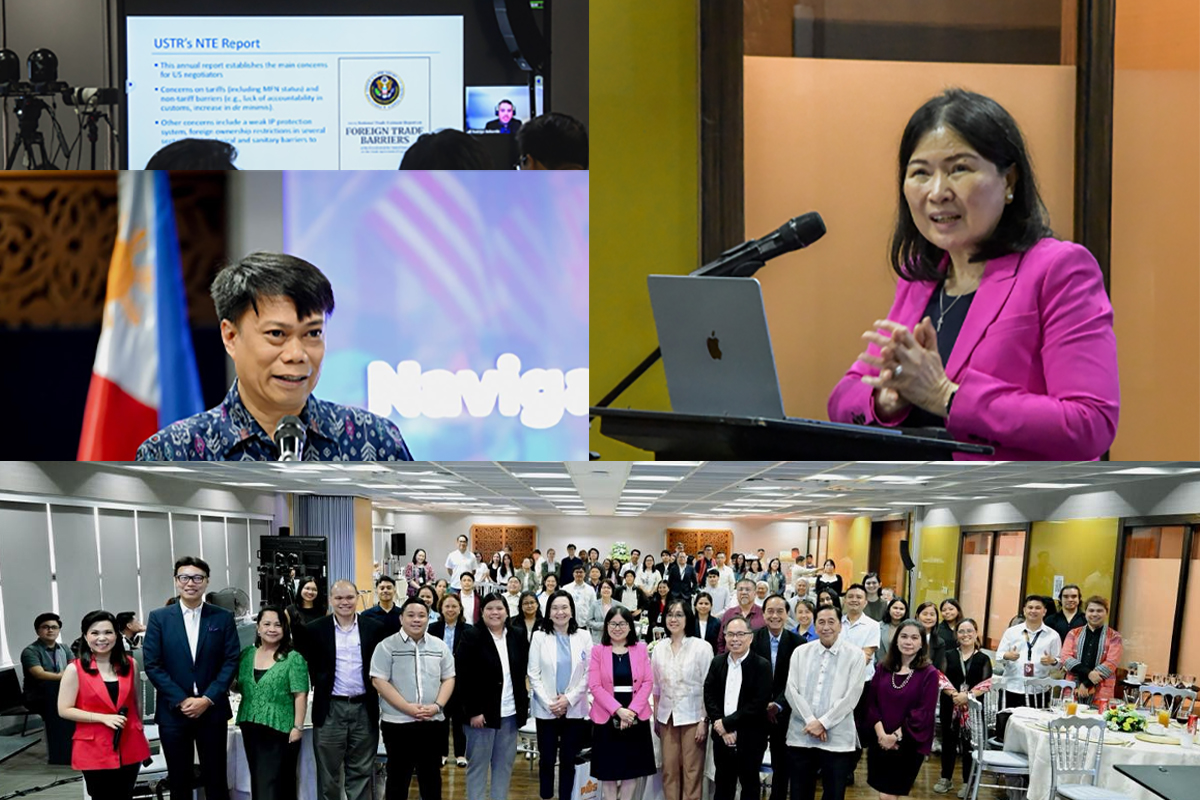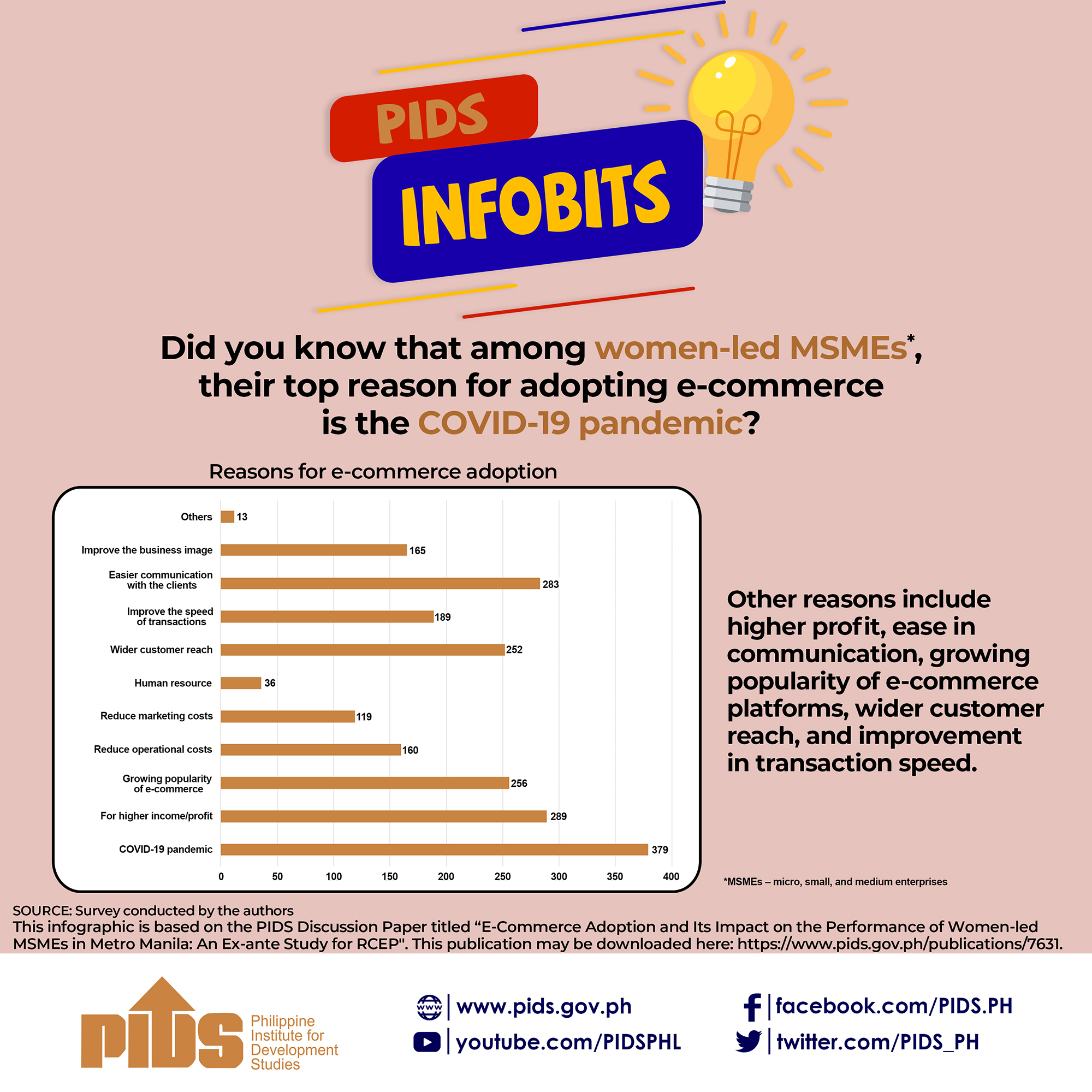Reversing the present policy of the government on tariff reduction will make local industries more inefficient, a study by government think tank Philippine Institute for Development Studies (PIDS) says.
According to Dr. Erlinda Medalla, PIDS senior research fellow and her associate, Ms. Rafaelita Aldaba in their paper, Backsliding in Tariff Policy Can Do More Harm than Good, reversing tariff reform at this time when firms have already started to respond to reforms will create a lot of uncertainty and instability that can easily swamp the gains earned from previous reforms.
Allowing the possibility of providing protection amidst the transition process thus send a signal to firms that the government will not commit itself to a given policy reform. This can negatively affect the performance of firms and can lead to so-called time-inconsistency problems. The firms do not adjust because they expect to obtain further protection in the future and it may not be politically optimal for the government not to grant such protection, the researchers explained.
Particularly damaging, they said, would be the high inflation and low growth. Increasing tariff rates will lead to a large degree of variability in relative prices that goes hand in hand with high inflation. With low growth, the firms ability to adjust to changes in relative prices diminishes, they argued
In addition, the researchers suggested that a policy reversal could reduce the governments credibility that will make investors and lending institutions doubt governments commitment to render well-meaning reforms.
According to Dr. Erlinda Medalla, PIDS senior research fellow and her associate, Ms. Rafaelita Aldaba in their paper, Backsliding in Tariff Policy Can Do More Harm than Good, reversing tariff reform at this time when firms have already started to respond to reforms will create a lot of uncertainty and instability that can easily swamp the gains earned from previous reforms.
Allowing the possibility of providing protection amidst the transition process thus send a signal to firms that the government will not commit itself to a given policy reform. This can negatively affect the performance of firms and can lead to so-called time-inconsistency problems. The firms do not adjust because they expect to obtain further protection in the future and it may not be politically optimal for the government not to grant such protection, the researchers explained.
Particularly damaging, they said, would be the high inflation and low growth. Increasing tariff rates will lead to a large degree of variability in relative prices that goes hand in hand with high inflation. With low growth, the firms ability to adjust to changes in relative prices diminishes, they argued
In addition, the researchers suggested that a policy reversal could reduce the governments credibility that will make investors and lending institutions doubt governments commitment to render well-meaning reforms.












